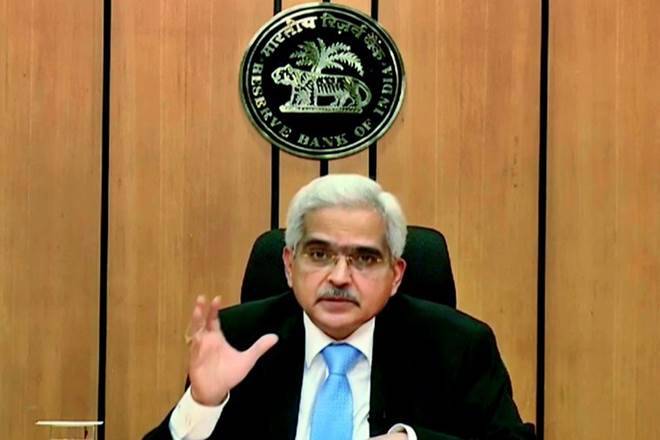RBI Monetary Policy: Hopes Of EMI Reduction Shattered
RBI Monetary Policy: hopes of EMI reduction shattered, the suspension on Loan Moratorium remains intact. Reserve Bank of India (RBI) Governor Shaktikanta Das is giving information about bi-monthly RBI monetary policy.
He said that the meeting of the Monetary Policy Committee (MPC) took place from August 4 to August 6, 2020. The MPC has kept the repo rate unchanged at four percent. Das said credit growth stood at 6 percent, the lowest level in the past 6 decades.
RBI Governor Shaktikanta Das said that in view of the prevailing circumstances of Covid-19, it is permissible for lenders (banks / NBFCs) from the central bank to restructure the loans of corporate and individual borrowers. However, he did not specify whether the loan moratorium period has been increased or not. Clarity on this is still awaited.
To enhance the security of check payments, RBI Governor Shaktikanta Das said that it has been decided to introduce a mechanism of positive pay for all checks valued at Rs 50,000 and above. It will cover about 20 percent and 80 percent of the total checks of value respectively. Operational guidelines in this regard will be issued separately.
Let me tell you that in recent monetary policy reviews, the Reserve Bank has focused more on financial stability. At the same time, work has been done to further the growth. Since February 2020, the RBI has cut the repo rate by 1.15 percent.
RBI Monetary Policy August 2020
There is a sharp trend in the stock market before the Reserve Bank announces bimonthly monetary policy. At 11.56, the NSE Nifty is trading at a level of 11,164.65 with a gain of 63 points. At the same time, the bank Nifty was seen trading at 21502.80 with a fall of 0.03 percent.
No change in Repo Rate. The Monetary Policy Committee retained it at 4 percent. Das said that the recovery in the economy has suffered a setback due to a spurt in Covid-19 cases in several major economies in July.
RBI Governor said that inflation is expected to increase in the second quarter of this year also due to Kovid-19. However, it is expected to decrease in the second half.
At 12.12, the bank Nifty was trading at 21458.15, down 0.24.
The Monetary Policy Committee of the central bank has kept its stance on the economy as ‘informative’.RBI Governor Das says economic activity was starting to improve, but the rise in transition forced a lockdown.
Credit growth at 6-decade low: Recently, the central bank has infused a lot of cash into the system at various stages. At the same time, the government has also made many efforts. However, none of the efforts have strengthened the borrowing activities. Credit growth is at 6 percent, the lowest level in the past 6 decades.
The central bank governor said that due to pressure on inflation, there was no consensus on the reduction in the repo rate. Retail inflation reached 6.09 percent in June. This is more than the Reserve Bank’s target of 2-6 percent.
RBI Governor Shaktikanta Das said that the spread of even the lowest investment-grade bonds has come down significantly.
The RBI Governor said that the real GDP growth rate is projected to be in negative points in FY 2020-21. However, any positive news about Kovid-19 will change the scenario.
Additional Special Liquidity: Das announced to add an additional Rs 10,000 crore to the system. This additional liquidity will be made available to NABARD and National Housing Bank. This will help the NBFC and the housing sector overcome the current crisis.
RBI Governor Shaktikanta Das said that the central bank has constituted a specialization committee under the chairmanship of veteran banker KV Kamat for the resolution scheme. Das said that the guidelines related to lending to priority areas have been reviewed. He said that an incentive scheme for banks would be introduced soon.
Das said the RBI has allowed banks to restructure the debt of corporate and individual creditors to mitigate the effects of COVID-19.
The RBI governor said that the Reserve Bank of India will set up an innovation hub in the coming times. At the same time, an online dispute mechanism will also be brought about digital payment
RBI Governor Shaktikanta Das said that it has also been decided to extend priority sector lending status to startup companies. To reduce the problems faced by people due to Covid-19, it has been decided to increase the loan limit for gold from 75 percent to 90 percent.
Following the news of increasing the limit of Gold Loan, at 1.10 minutes, shares of MANAPPURAM FINANCE LIMITED have seen a gain of 2.10 percent and it was seen to be trading at Rs 162.65. Similarly, MUTHOOT FINANCE LIMITED was also trading at Rs 1276.70 per share with a gain of 1.50 percent.
The Governor said that the MSMEs whose accounts would be as per the classified standards would be eligible for restructuring the loan.
In view of the effects of the coronavirus on the economy, the Reserve Bank in March extended the loan moratorium (deferment for loan installments) for three months to borrowers. The facility was initially offered for three months from March to 31 May. Later the Reserve Bank extended it for another 3 months.
Impact of repo rate on common man
When RBI will provide loans at low interest rate to the banks, meaning when the repo rate is low, banks can also give cheaper loans to their customers. Similarly, if the RBI increases the repo rate, it becomes expensive for banks to take loans and banks make loans expensive for their customers.




